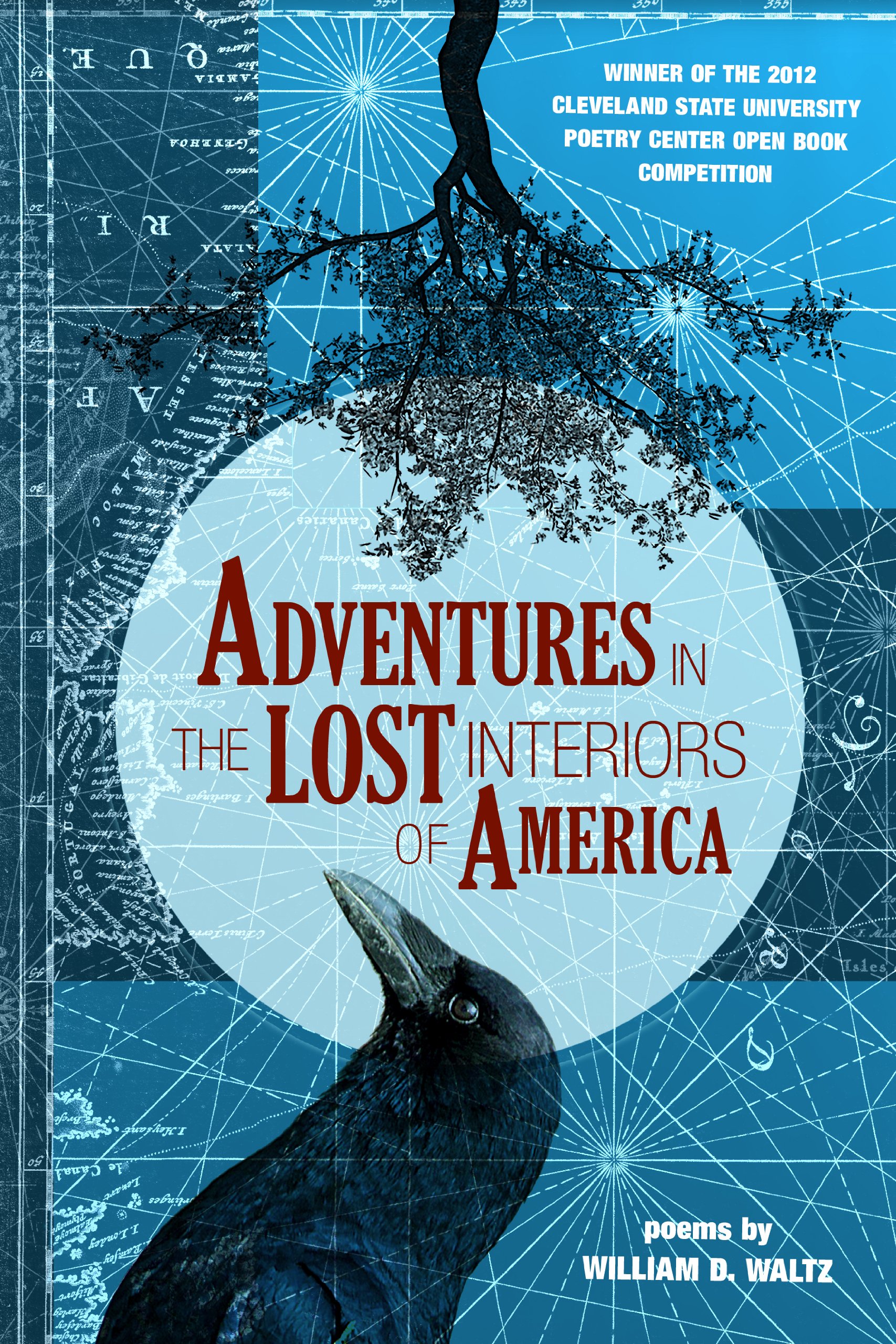- William Waltz: Review by M.P. Jones

Adventures in the Lost Interiors of America by William D. Waltz (Cleveland State University Poetry Center)
In its striking interiority, Willam D. Waltz’s second award-winning collection of poetry looks to the lost, the forgotten, and the unconventional American places in its search for adventure. This journey is as much about the profound powers of desire and memory to redeem lost and wasted places. Waltz’s first collection, Zoo Music, which won the Slope Editions Book Prize, offers equally challenging and insightful views into American landscapes, both psychological and geographic. Winner of the 2012 Cleveland State University Poetry Center Open Book Competition, Adventures in the Lost Interiors of America was selected out of almost one thousand manuscripts, and the book’s striking use of memory and desire emerge from amongst so many contemporary writers whose poetic endgame is merely irony and despair. Waltz’s profound hopefulness and constant sense of wonder informs the speaker’s relationship with devastated places and memories.
At its most powerful moments, Waltz’s poetry recalls writers like James Wright and W.S. Merwin with its lyrical force, intricate line breaks, and still reflections in nature, as in the introductory poem, “Before We Begin,” in which the speaker asserts “If we keep coming back / to death, like our walks / return us to the lake, it’s because death is nothing / without us” (4). Although death and loss return him to images of nature for guidance and wisdom, Waltz isn’t a nature poet in any contemporary sense. His sojourns are as likely to take place in the barbershop and the waiting room as they are in the woods. His distrust for the pastoral tourist trap is evident in “Here Comes the Segues” when he declares “I don’t like to wait / for history or for dumplings / on a paper plate. There are 7,000,000,000 like me” (20). His search isn’t for the segue tour of a national park but for the lost interiority he finds in the great exterior. His writing is, however, profoundly ecological. These poems seek connections—through memory, through humor, and through the exploration of place.
Part of the mission statement of Conduit—Waltz’s literary journal—describes the work it seeks as “at once direct, playful, inventive, irreverent, and darkly beautiful,” and this aim reflects his own approach to poetry, in which “vigorous imagination is one that is cross-pollinated by diverse areas of human inquiry.” Waltz’s subjects are always surprising, but they all share in the redemptive power of quiet recollection. He journeys through the interiors of the earth’s surface itself in “Enough Light,” and then he heads up into the trees to find “[w]orld enough to soothe / the buzz and clamor in a forest of hearts” (35). In “My Information,” he navigates the relationship between what “Lewis & Clark scrawled / on the river bluffs / (dates, initials)” and the information left behind while exploring the internet. The results are both strange and hilarious.
Though its trail may lead you through uncanny spaces, the journey will be full of delight and celebration, mystery and shadow. If sometimes Waltz’s humor seems to make the trip too absurd, it is only to lead us in new directions, toward the uncharted or forgotten recesses of the American psychological landscape. Throughout his descent down the “Warp Path,” Waltz wonders “[h]ow in the world / will we find our way / along this bent path / with only the light / we carry” (78), but we are always reminded that the light found in the boldness and honesty of these reflections will be enough to lead us onward through the wilderness of meaning and remembrances, even if they cannot promise an easy return home.
M.P Jones IV is founder and editor-in-chief of Kudzu Review. His recent work includes poetry in Harpur Palate, Portland Review, Tampa Review, Cumberland River Review, and others. He also has a collection of poetry, Live at Lethe (Sweatshoppe Publications, 2013).
